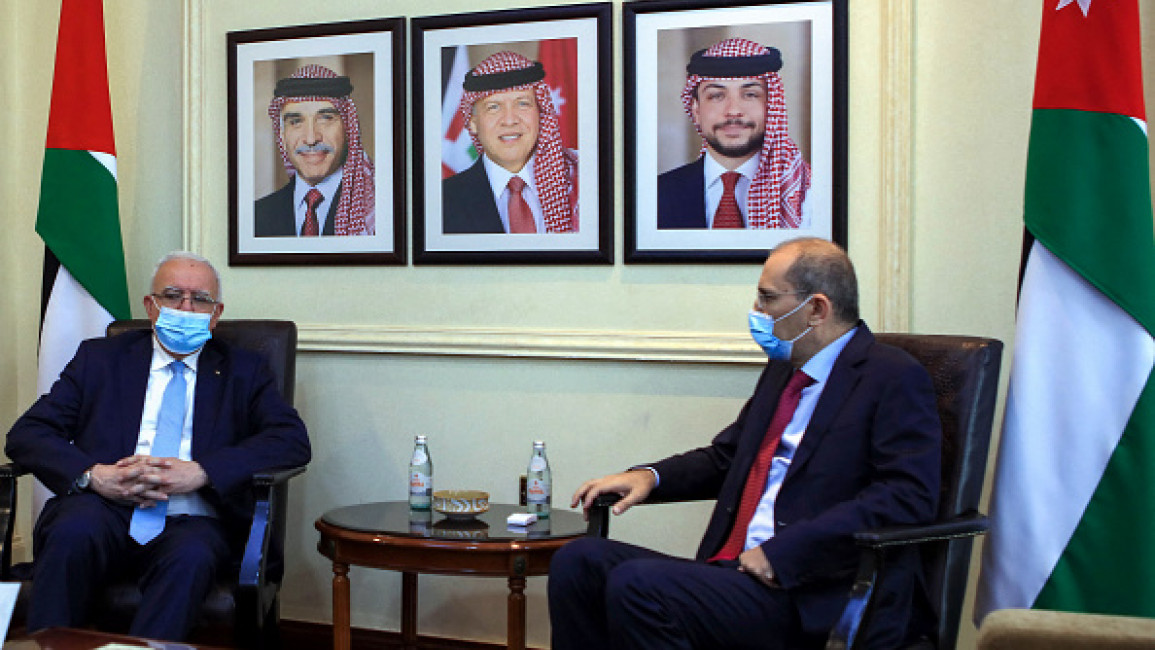Jordan elected to lead group against Israeli violence in occupied Palestinian territories
Jordan was elected by the Arab Ministerial Committee on Tuesday to lead a group to stop Israeli violence and provocations against Palestinians in the occupied Palestinian territories.
The committee—made up of ministers from Egypt, Palestine, Morocco, Jordan, Saudi Arabia, Tunisia, Qatar and a representative from the Arab League—appointed Jordanian foreign minister Ayman Safadi as the point-man on finding international mechanisms to prevent further Israeli aggression in the Palestinian territories.
The election of Jordan as the head of this group is unsurprising, not only due to its geographic proximity to Palestine, but also because of its diplomatic relationship with both Israel and Palestine.
“Jordan has the largest number of Palestinian refugees in the world and most importantly it has a peace agreement with Israel—the Wadi Araba agreement,” Ihsan Adel, the founder and chair of Law for Palestine, explained to The New Arab.
Jordan controlled the West Bank after the 1948 Arab-Israeli war up until the 1967 war with Israel, where it lost control of the territory—though it did not officially relinquish its control until 1988. Jordan still maintains custodianship over all the Christian and Islamic holy sites in Jerusalem, including the Al-Aqsa Mosque.
“Israel has an obligation to respect Jordan’s role in the holy sites in Jerusalem, under the [peace] agreement” Adel said. In addition, the recent events in Sheikh Jarrah, a neighborhood in Jerusalem from which Israeli settlers are seeking to expel its Arab residents, concern Jordan, Adel explained, as “the residents of the neighborhood live there based on an agreement with the Jordanian government.”
“Thus, what is happening in Jerusalem does not affect the Palestinians alone, but legally and politically, directly [involve] Jordan,” he added.
Jordan is no stranger to diplomacy when it comes to Palestine. In the recent Israeli war on Gaza starting in mid-May, Amman worked quietly behind the scenes with Egypt and France to broker a ceasefire between Hamas and Israel. Jordan’s King Abdullah II also loudly rejected the Trump administration’s so-called Deal of the Century, and has repeatedly announced that Jerusalem is a red-line for the monarch.
Further, given Jordan’s unique status as a signatory to the Wadi Araba treaty and its status as the custodian of certain sites in Jerusalem, it has several unique diplomatic levers it can utilise to exert pressure on Israel.
“[Because] what Israel is doing in Jerusalem is a violation of the peace agreement (…) Jordan can file a complaint with the [UN] Security Council, in addition to summoning the ambassador for consultations, reduce the level of diplomatic representation [with Israel], freeze or cut diplomatic relations, or withdraw its ambassador to Israel,” Adel said.
The committee will have its work cut out for it, as Israel resumed bombing of Gaza on Wednesday June 16, in violation of the most recent ceasefire signed between Hamas, while Israeli extremists have continued marches on Jerusalem and raids of the Al-Aqsa Mosque.



